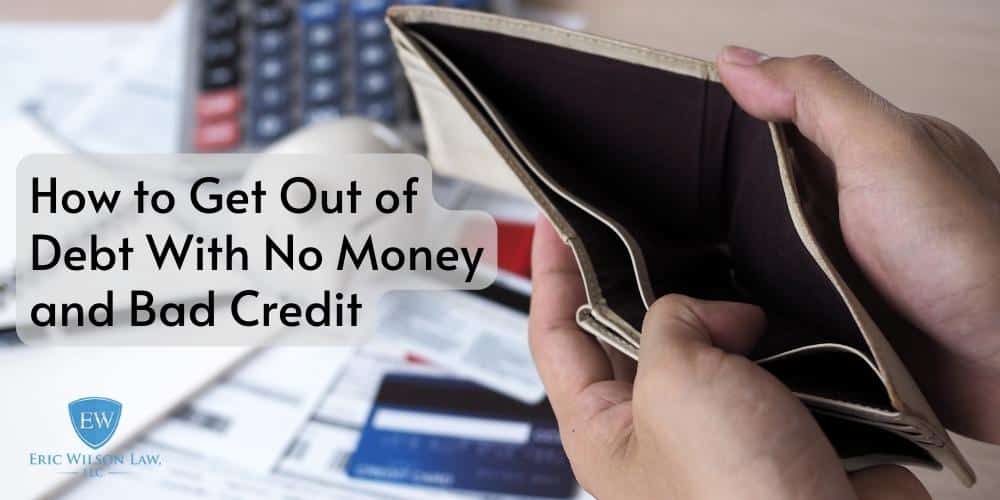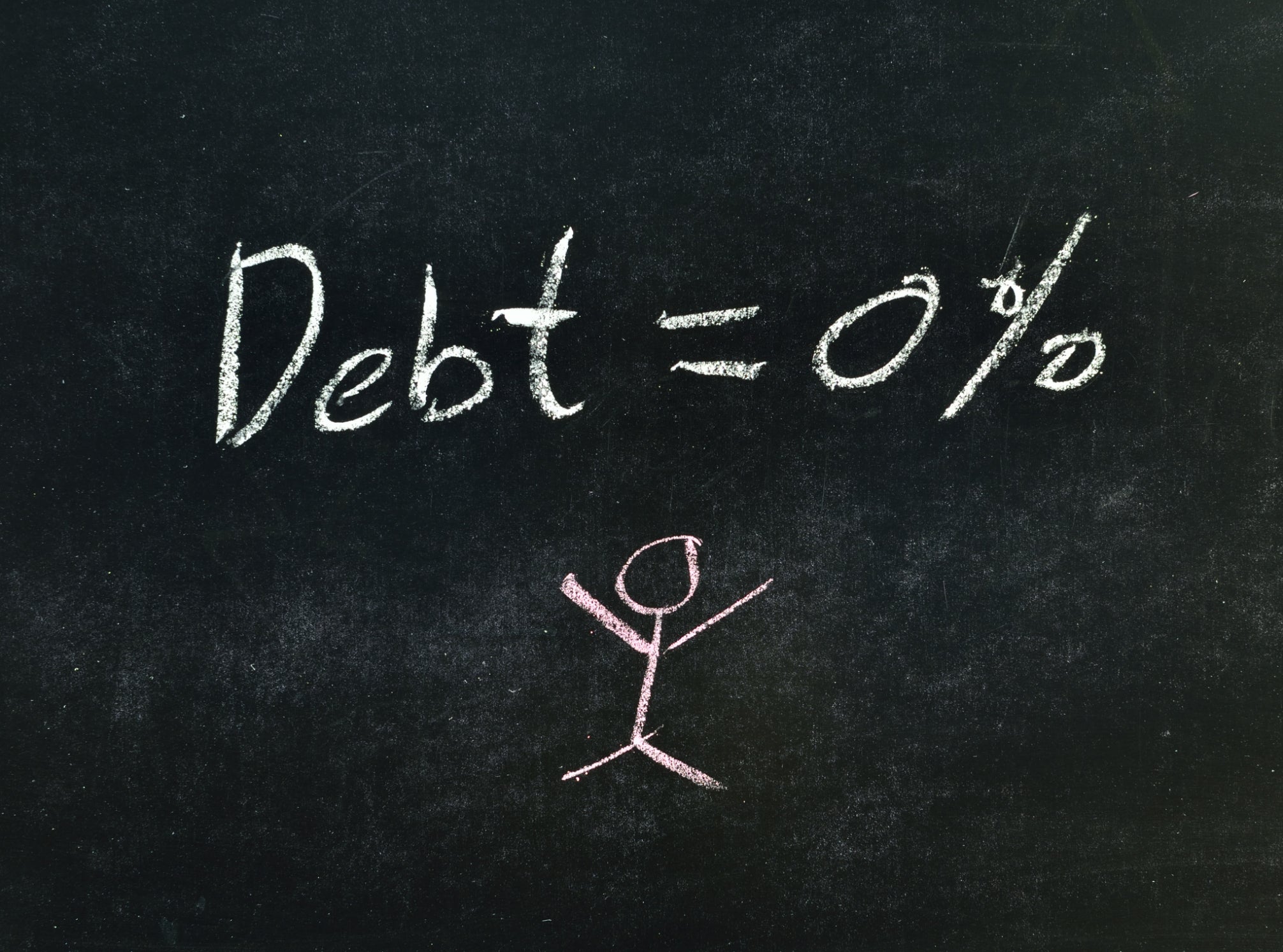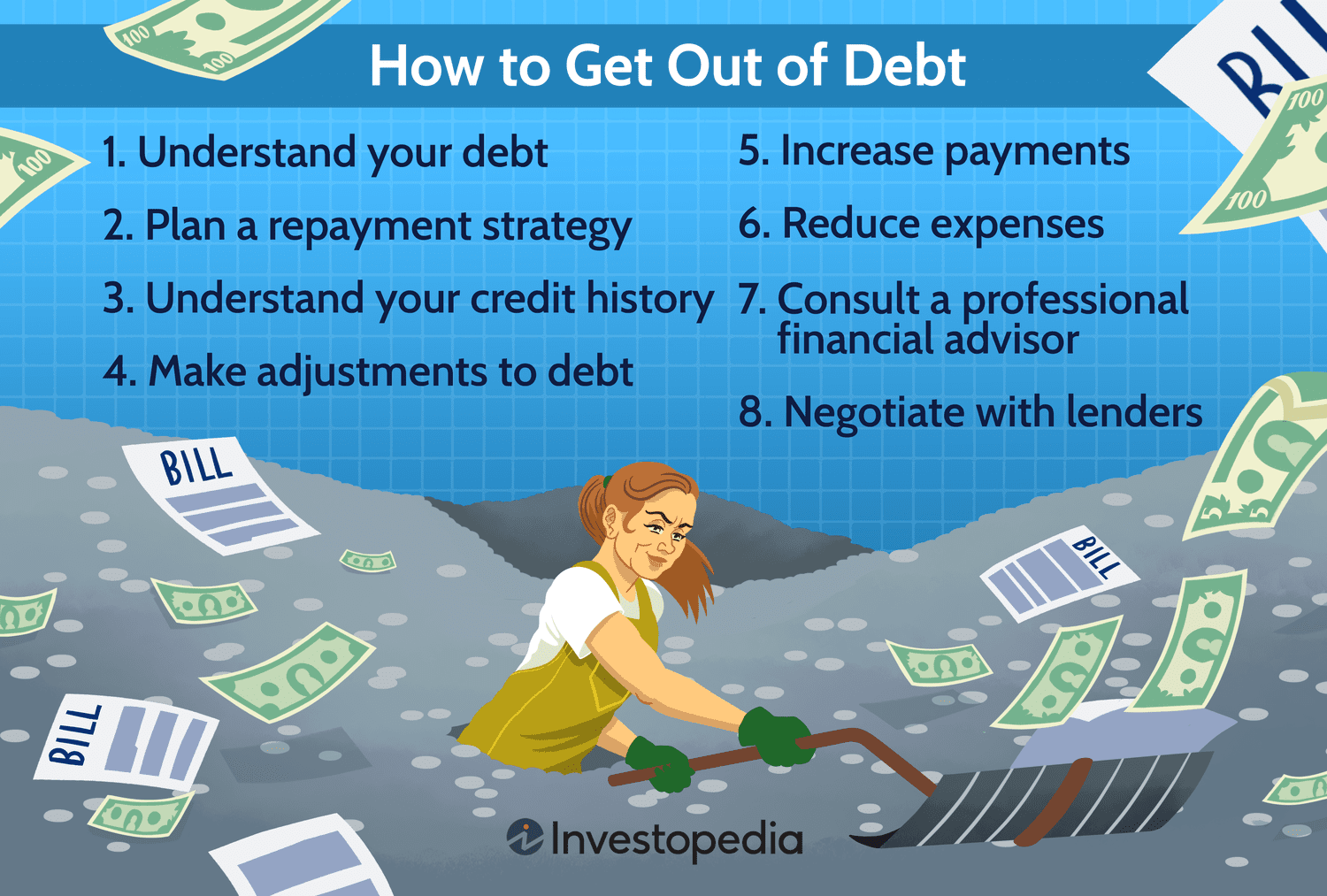To get out of debt with no money, focus on increasing income and reducing expenses. Here’s how you can take control of your finances and improve your financial situation.
Dealing with debt can be overwhelming, especially if you don’t have much money to spare. However, there are strategies you can implement to regain control of your financial situation. The first step is to increase your income by exploring additional sources of revenue.
Consider taking on a side job or freelancing to boost your earnings. Next, reduce your expenses by creating a budget and identifying areas where you can cut back. Prioritize essential expenses and eliminate non-essential ones. Additionally, negotiate with creditors to lower your interest rates or establish a payment plan. By taking proactive steps and making smart financial choices, you can gradually work towards getting out of debt even without a significant amount of money.

Credit: www.warriortrading.com
Table of Contents
Evaluate Your Financial Situation
Evaluate your financial situation to find a way out of debt, even if you have no money to start with. Take a close look at your income, expenses, and prioritize debt payments to create a plan that works for you.
Assess Your Debts
| Debt Type | Amount Owed | Interest Rate |
|---|---|---|
| Credit Card 1 | $5,000 | 15% |
| Credit Card 2 | $3,000 | 18% |
| Student Loan | $20,000 | 5% |
| Car Loan | $10,000 | 8% |
Before you can effectively tackle your debt, it’s important to evaluate your financial situation. This involves assessing your debts and understanding the amount owed, interest rates, and payment terms. Here’s a breakdown of the debts you may have:
Credit Card 1: You owe $5,000 on this credit card with an interest rate of 15%.
Credit Card 2: Another credit card debt of $3,000 with a higher interest rate of 18%.
Student Loan: If you have a student loan, the amount owed may be substantial. For example, let’s say you owe $20,000 at an interest rate of 5%.
Car Loan: If you have a car loan, it’s crucial to include it in your assessment. Suppose you owe $10,000 at an interest rate of 8%.
Calculate Your Income And Expenses
Once you’ve assessed your debts, the next step is to calculate your income and expenses. Understanding your financial inflows and outflows will help you determine how much money you can allocate towards debt repayment.
- Income: Include all sources of income, such as your monthly salary, freelance work, or rental income.
- Expenses: Make a detailed list of your essential expenses like rent/mortgage, utilities, groceries, and transportation. Don’t forget to include any recurring payments or subscriptions.
With this information, you can subtract your total expenses from your income to determine your disposable income. This is the amount of money you have available to put towards paying off your debts. Remember, every dollar counts, so even a small surplus can make a difference in your debt repayment journey.
Create A Budget And Stick To It
One of the first steps to getting out of debt when you have no money is to create a budget and, most importantly, stick to it. A budget is a powerful tool that helps you track your income and expenses, allowing you to allocate your money strategically. By creating a budget and committing to it, you can take control of your financial situation and start making progress towards becoming debt-free.
Cutting Expenses
To create a budget, you must first take a close look at your expenses. Identify areas where you can cut back and eliminate unnecessary costs. By reducing your expenses, you can redirect that money towards paying off your debt. Consider these strategies to cut expenses:
- Evaluate your monthly subscriptions: Cancel any subscriptions or memberships that you don’t need or use frequently. This can include streaming services, gym memberships, or magazine subscriptions.
- Limit eating out: Cooking meals at home can significantly reduce your food expenses. Plan your meals, make grocery lists, and stick to them to avoid impulse buying.
- Reduce utility costs: Look for ways to save on electricity, water, and gas. Turn off lights when not in use, use energy-efficient appliances, and implement water-saving techniques.
- Shop smart: Before making a purchase, compare prices from different stores or online platforms. Look for sales, discounts, and coupons to get the best deals.
Increasing Income
While cutting expenses is essential for getting out of debt, increasing your income can also accelerate the process. Here are some ways to boost your income:
- Take on a part-time job: Consider finding a part-time job or freelancing opportunities to supplement your current income. This additional source of income can be dedicated towards paying off your debt.
- Utilize your skills: If you have marketable skills, offer your services on platforms like Fiverr or Upwork. By utilizing your skills, you can earn extra income in your spare time.
- Create a side hustle: Turn your hobbies or talents into a profitable side business. Whether it’s selling handmade crafts, offering tutoring services, or starting a small online business, a side hustle can generate extra income.
- Rent out unused space: If you have an extra room or a parking space, you can consider renting it out to earn additional income.
By incorporating both expense-cutting and income-increasing strategies into your budget, you can start making a significant dent in your debt. Remember, the key is to stick to your budget consistently while finding ways to save and earn more money. Over time, your dedication and smart financial choices will help you achieve your goal of getting out of debt, even when you initially have little or no money.
Explore Debt Repayment Strategies
In this section, we will explore effective debt repayment strategies that can help you get out of debt, even if you don’t have much money to spare. By understanding these strategies and implementing them wisely, you can take control of your financial situation and work towards a debt-free future.
Prioritize Your Debts
When you are dealing with multiple debts, it is crucial to prioritize and focus on the ones that require immediate attention. By creating a clear picture of your outstanding debts, you can identify which ones are more urgent and need to be addressed first.
One way to do this is by listing your debts in order of interest rates, starting from the highest to the lowest. By tackling the debts with the highest interest rates first, you can minimize the amount of interest accumulating over time and potentially save money in the long run.
Another approach is to prioritize debts based on their sizes. This method involves paying off the smaller debts first and then moving on to the larger ones. By achieving small victories early on, you can build momentum and stay motivated to tackle the larger debts down the line.
Negotiate With Creditors
In some cases, it may be possible to negotiate with your creditors to reduce the amount you owe or renegotiate the terms of your debt repayment. This can be particularly beneficial if you are struggling to meet your financial obligations due to limited funds.
Start by contacting your creditors and explaining your situation. Be honest about your financial limitations and express your willingness to repay the debt. In some cases, creditors may be willing to offer a repayment plan with reduced monthly payments or even a settlement amount lower than your total debt.
Proactively reaching out to your creditors demonstrates your commitment to resolving the debt and can potentially lead to more flexible arrangements. However, it’s important to remember that not all creditors will be open to negotiations, so it’s crucial to be prepared for different outcomes.
By prioritizing your debts and negotiating with creditors, you can begin to take proactive steps towards getting out of debt, even if you have limited financial resources. Remember, every little effort counts, and by staying committed to your goal, you can make significant progress towards achieving financial freedom.

Credit: www.ericwilsonlaw.com
Consider Debt Consolidation Or Settlement
Consider debt consolidation or settlement as a viable option for getting out of debt when you have little to no money. These solutions can help you consolidate your debts into one manageable payment or negotiate lower settlements with your creditors.
If you find yourself overwhelmed by debt and have no money to spare, debt consolidation or settlement may be viable options to consider. These strategies can help you regain control of your finances and pave the way towards a debt-free future. Let’s take a closer look at both options:
Consolidate Your Debts
Debt consolidation involves combining multiple debts into one manageable payment. This can simplify your financial situation by reducing the number of creditors and monthly payments you need to juggle. When you consolidate your debts, you essentially take out a new loan to pay off your existing debts. This allows you to focus on just one monthly payment, making it easier to stay organized and keep on top of your financial obligations.
To consolidate your debts, you can explore a few different options:
- Personal Loan: You might qualify for a personal loan from a bank, credit union, or online lender. This loan can be used to pay off your outstanding debts, consolidating them into one loan with a single interest rate and payment plan.
- Balance Transfer: If you have credit card debts, you can transfer the balances to a new credit card with a lower interest rate or even a 0% introductory APR. This way, you can save on interest and focus on repaying the consolidated balance.
- Home Equity Loan or Line of Credit: If you own a home, you may be able to leverage the equity you have built to secure a loan or line of credit. This can help you consolidate your debts into one manageable payment, typically at a lower interest rate.
It’s important to carefully consider the terms, interest rates, and fees associated with each option. Determine which choice aligns best with your financial circumstances and goals. Debt consolidation can be an effective way to simplify your debt load and potentially save money on interest payments.
Work With A Debt Settlement Company
If your financial situation is dire and you are unable to make payments on your debts, working with a debt settlement company might be a suitable alternative. These companies negotiate with your creditors on your behalf to reach a settlement, typically for a reduced amount. The idea is to pay a lump sum or a series of agreed-upon payments to clear your debt. Debt settlement can help you avoid bankruptcy and provide much-needed debt relief.
When considering a debt settlement company, it’s essential to do thorough research and choose a reputable organization. Look for companies that are accredited and have a track record of successful settlements. Additionally, carefully review any fees associated with their services and ensure they are transparent and reasonable.
Keep in mind that debt settlement can have negative impacts on your credit score, as it involves not paying the full amount owed. However, if you’re already struggling to make payments and facing potential bankruptcy, settling your debts may be the more favorable option.
Be sure to weigh the benefits and drawbacks of debt consolidation and settlement carefully. Consider consulting with a financial advisor or credit counselor to determine which approach is best suited to your specific circumstances. Remember, taking action is the first step towards reclaiming your financial freedom.

Credit: www.credit.com
Frequently Asked Questions Of Getting Out Of Debt With No Money
How Can I Pay Off My Debt If I Have No Money?
To pay off debt with no money, start by creating a budget to track expenses. Cut down on non-essential spending and consider increasing your income through side jobs or selling unused items. Reach out to your creditors to negotiate a payment plan or seek assistance from credit counseling agencies.
Stay committed and disciplined to gradually eliminate your debt.
How Can I Escape My Debt Without Paying?
To escape debt without paying, it is important to take responsibility for your financial obligations. Avoiding payment is not a viable solution and typically leads to legal consequences. Instead, consider options like budgeting, negotiating with creditors, or seeking professional debt counseling to create a plan for repayment and financial freedom.
How Can I Get Rid Of My Debt Without Paying?
The only way to get rid of debt is by paying it off. There are no legal loopholes or shortcuts to avoid paying what you owe. Make a budget, cut expenses, increase income, and put all extra money towards your debt for a quicker payoff.
What Happens If You Can’t Afford To Pay Your Debt?
If you can’t afford to pay your debt, there are several options available. You can negotiate with your creditors for a payment plan or settlement. You can also consider credit counseling or debt consolidation programs. Bankruptcy may be a last resort.
Seek professional advice to find the best solution for your situation.
Conclusion
To sum it up, conquering debt when you’re strapped for cash may seem impossible, but it’s not. By prioritizing your expenses, creating a realistic budget, exploring additional sources of income, and seeking professional guidance, you can successfully navigate your way to financial independence.
Remember, financial freedom is within reach, and with determination and discipline, you can conquer debt and pave the way for a brighter financial future. So, take charge of your finances today and start your journey towards a debt-free life.
